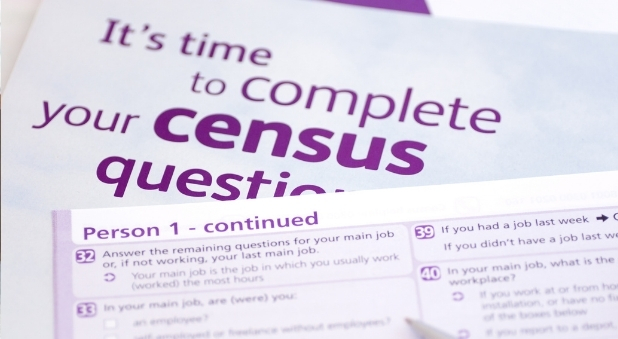The 2021 Census went ahead in August despite the added complexities of lockdown restrictions. The Commonwealth's five-yearly Census is such a significant measuring point for our nation that not even a pandemic could stop it. Over the coming years, the information gathered will help us understand societal trends and help with future planning.
How the Census was undertaken this year was very different from the first Commonwealth Census in 1911. Along with almost every other area of life, we can now complete the Census online. Clearly, for governments to plan for society, having relevant information on population and demographic changes is essential.
The desire to measure and record is a very human characteristic. Indeed, you cannot read through the Old Testament without noticing how significant record keeping must have been, as the age of individuals and number of people are noted. It is not the main point of Genesis 5 – the first time ages are recorded – but the existence of an extensive system of recording individuals' ages is noteworthy.
As the storyline of the Old Testament unfolds, the writers take the time at significant turning points to note what we might today refer to as statistics. Of course, they were never mere statistics: they expressed – in a measured way – God's unfolding purpose.
So, our current interest in measurement and statistics is not new. What has changed is the extraordinarily rapid expansion to measure all aspects of our society and our personal lives. That we can now complete the Census online is all the evidence we need as to why this has happened. Technology has profoundly changed what and how we measure.
With little reflection on how the count has been determined, we wait daily for the NSW Premier’s 11am COVID-19 briefing to hear exact numbers for the previous day. We can know immediately whether we got close to taking 10,000 steps every day. Whatever platform our church uses for an online gathering, we can receive immediate feedback on numbers. Each of these is a small indication of how much of life is now measured.
Our capacity to generate data and statistics on all aspects of our society has proven benefits. It allows more informed predictions to be made. We learn from mistakes and track progress. For these reasons alone, our diocesan churches participate in the National Church Life Survey, completed the same year as the Census, and provide annual statistics to the Registry.
However, care is needed. First, in a culture obsessed with measuring everything, we need to remember that numbers can never quantify who we are. As an example, personal data does not care about our relationships or help us discern what is valuable.
Second, though we may have information through personal data, we do not have self-knowledge. There is a movement called the “quantified self” that desires to find meaning through the self-knowledge available from numbers, so the individual can improve their physical, emotional and mental life. Yet measurement of data cannot deal with us as social and relational beings.
Third, the obsession with the measurement of life feeds secular materialism. We feel that if we have sufficient data, we can control our lives and remove all mystery. Pushed too far, this reinforces a secular mindset. Since what is measured are the physical aspects of our world, the material world is valued above all. We value what we can measure. Yet data alone cannot provide meaning.
Measuring church?
What does this mean for our diocesan use of the National Church Life Survey and our annual church statistics? Perhaps Tim Keller provides wise counsel: "Don't let numbers go to your head or lack of numbers go to your heart".
We need to reflect on what has been done and make informed predictions. Ongoing statistical measurement allows progress to be tracked. But numbers cannot tell the whole story; what is always essential is God's word faithfully preached.
Faithfulness is required in times of increase or decline. However, without reflection, understanding of context, evaluation and ongoing adjustments, “mere” faithfulness is not the appropriate response to our current cultural obsession with numbers.
Appropriately used, they are a tool that can help us in our prayerful aim of reaching every community within the geographic reach of our Diocese with the gospel of the Lord Jesus Christ.
The Rt Rev Peter Hayward is Bishop of the Wollongong Region.
























